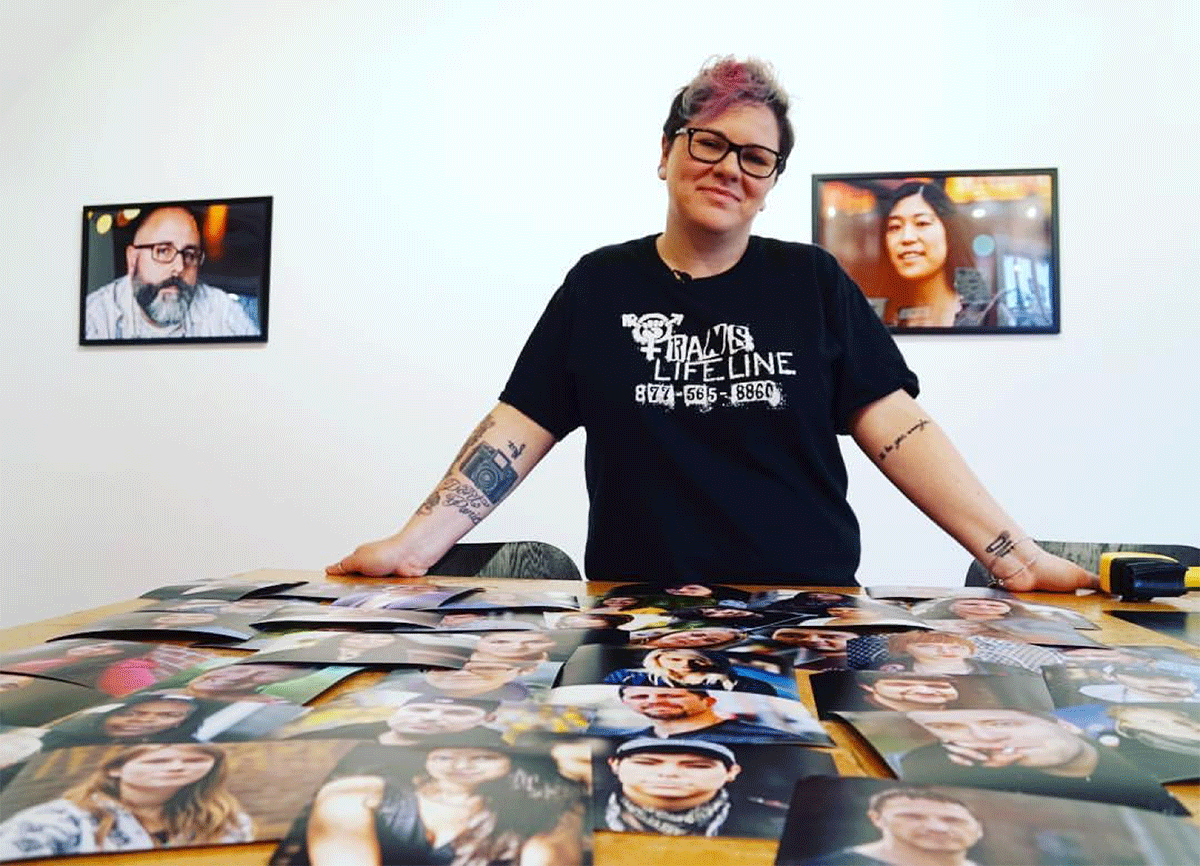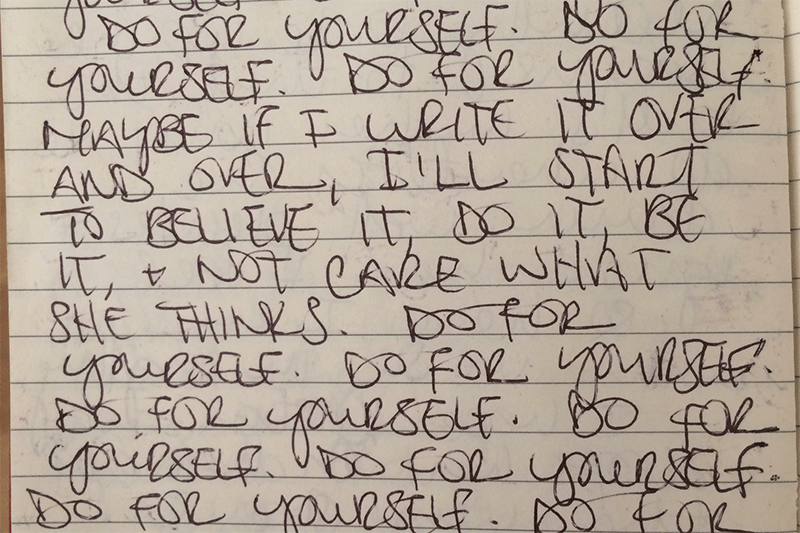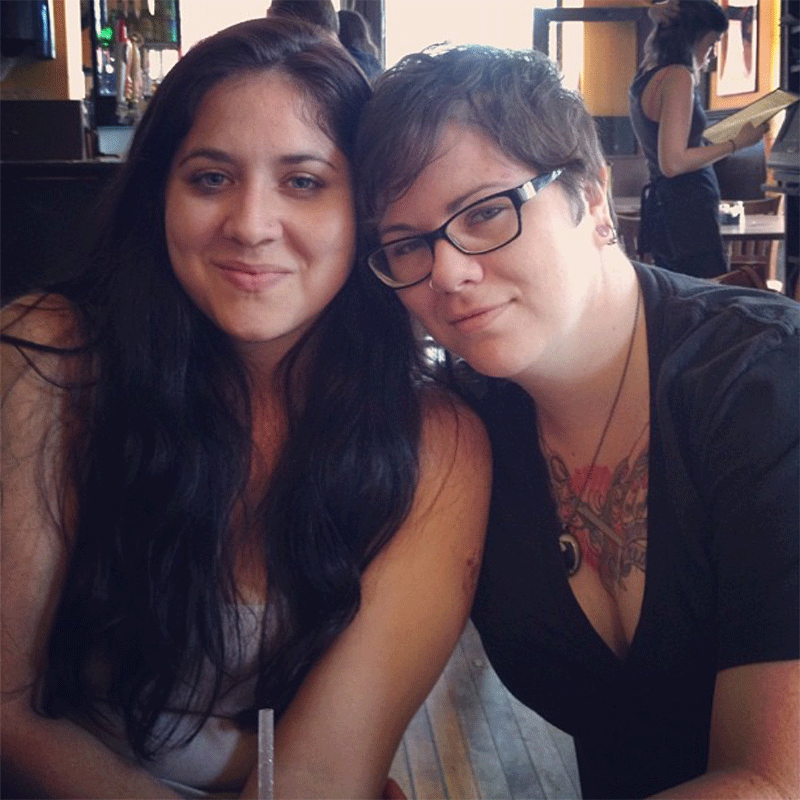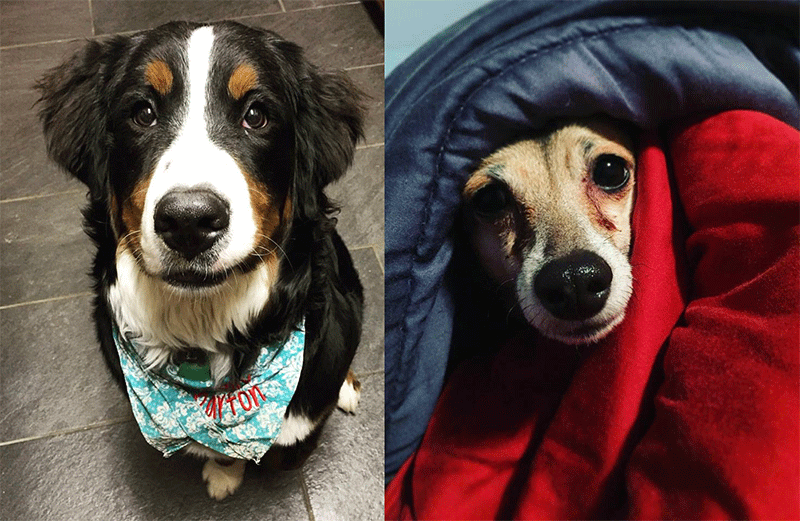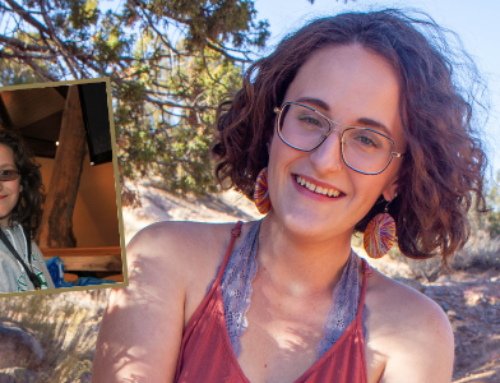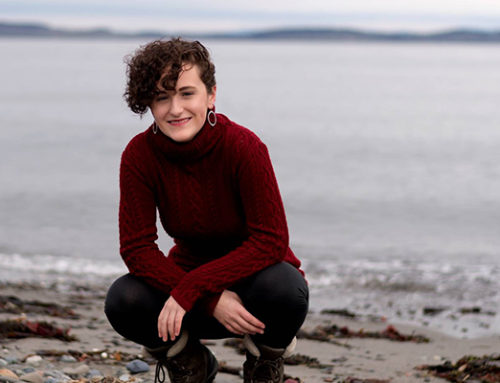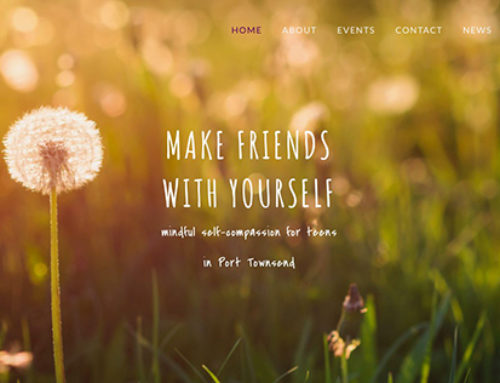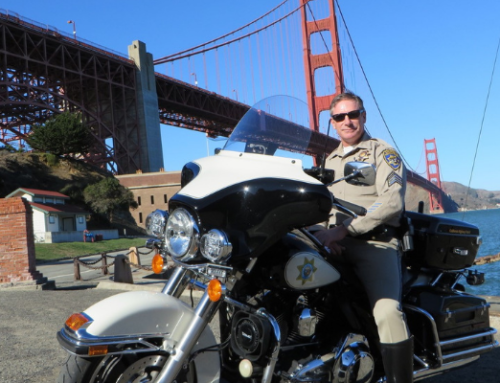Warning: If you struggle with self-harm or suicidal thoughts, some of these stories could be potentially triggering. You can contact the National Suicide Prevention Lifeline at 1-800-273-TALK (8255) or the Crisis Text Line by texting START to 741-741 for free and confidential support.
I tried to kill myself in the summer of 2006. I was 23.
I spent a month deeply entrenched in an exhaustive cycle of breaking up and getting back together with Emma*, the girl I’d loved for three years. She was cheating on me, but neither of us could sever ties with the other. We’d break up, we’d sleep together, we’d get back together in rapid succession. It was always over again as quickly as it began. We had serious codependence issues. I tried to accept this as it came, but I felt helpless. Walking away wasn’t an option. I thought that the very act of loving her was enough to make it work.
I wasn’t eating. I was barely sleeping. I was trying to maintain a job and a social life. I’d been accepted to graduate school back home in Miami, and I was preparing for a cross-country move. I was trying to do all of this without betraying the fact that I was not okay. I was suicidal.
Emma and I were both pasta slingers at everyone’s favorite Italian chain. Think: soggy breadsticks, endless soup and salad and, “When you’re here, you’re family!” We worked the early shift on a Tuesday and settled into my favorite booth afterward to have lunch together. We had an argument—one of many which, over the years, had escalated to being emotionally, and then physically, abusive.
The year before, I bought a car for the sole purpose of escape. When the fights got bad, I’d drive. It was better than getting punched in the face by the person I loved, or retaliating—the latter of which was soul-crushing in a way I still can’t describe, over a decade later. This brand of escapist panic driving escalated into suicidal fantasies about driving off bridges or into ditches. Rural Tennessee provided plenty of fodder.
I set a plan in motion on Halloween 2005, but Emma came home and stopped me. She had no love or care for me in those moments. She told me I’d ruined her holiday—one of many ticks on a very long list of ways in which I’d wronged her over time. She knew this list by heart, and could recite it to me at the drop of a hat.
So, when I found myself with her on that afternoon as she went down the list yet again—loudly, and in earshot of our coworkers—I grabbed my keys and went back to our apartment. I was terrified that the argument would flip the switch. I was frantic.
She came home, packed some things, said she was going out. I begged her not to go. I cried. I tore at her shirt. She went anyway.
I paced. I waited. I cried more. I tried to watch TV (Harry Potter and the Goblet of Fire). I tried to listen to music (Tori Amos—solid wallowing music). Hours passed. I felt like I would combust.
I called. I called again. I felt untethered, like a ball of raw nerves. I felt like I would die if I couldn’t hear her voice. Eventually, she picked up. I screamed her name, begged her to come home. She said no. I screamed more. I felt like I would die anyway. I felt like there was nothing else I could do, there were no other options. Even if she did come home, I didn’t think I could live with her anymore. It hurt too much.
I was in absolute terror of being alone, but I didn’t know where to turn. My best friends lived across the country, Emma clearly wasn’t coming home, and I felt isolated from my local friends. If Emma ever suspected that I was discussing our relationship with them, she’d tell me, “You’re turning them against me.” I feared the repercussions, so I was left with myself.
I was not safe with myself.
I’d spent weeks sitting on our porch scribbling in my journal, writing, “DO FOR YOURSELF,” over and over, page by page, like a mantra, trying to convince myself to leave. I listened to the trains pass behind the house and willed myself to lie down on the tracks and wait. I tried to work up the resolve to make deeper cuts – as cutting was my coping mechanism for nine years.
By then, the skin on my arms looked like a roadmap. Whenever I found myself in extreme emotional pain, an intense pressure would settle in my chest. It made me feel trapped and breathless, and there was only one way I knew to alleviate it.
The way I used to see it, if I could make myself bleed, it meant that my pain was real. If I could see it, then I could believe that it wasn’t just in my head because it was right there in front of me. Seeing it made it tangible. It made the pressure in my chest fade a little bit. It made the panic lessen. In its own way, it was helpful, but I also knew what kind of damage it could do if I lost control.
That night, I wanted to lose control.
When I thought about leaving, I panicked. When I thought about being alone, I panicked. When I thought about a life that didn’t include her, I panicked. When I thought about any kind of future, I panicked. I wanted to die. The longer I was alone, the more hopeless I felt.
The plan was to get so obliterated that I’d eventually lose that control, and that loss would allow me to cut deeper. I’d be so numb that it wouldn’t hurt.
Movies show suicide as a romantic drift into nothingness. None of that is real. It’s messy. It’s painful. It’s terrifying. Especially when you’re in it, woozy and bloody and blubbering.
I called again and again. Her phone went straight to voicemail almost every time. Then she picked up and, again, I begged her to come home. She hung up on me.
She called back two minutes later.
This time, she stayed on the phone, but just long enough to make sure the police had arrived. They pounded on the door, staccato-like knocks, and barged into my house. Our small living room was suddenly full of policemen and paramedics asking who I was and whether I had taken anything.
I was so hysterical that I couldn’t even tell them my name. I dialed my mom’s number. She gave them my information. When they put her back on the phone with me, she told me to go willingly. If I didn’t, they’d handcuff me and take me anyway. I didn’t have an option. She reminded me that having mental health issues on my records could ruin my chances of getting a job—in that very same field—in the future.**
I wasn’t allowed to get dressed. I was wearing a pair of thin, oversized, blue cotton pajama pants and a ratty t-shirt. I couldn’t even put on a bra.
I remember the quiet of the ambulance ride and the tungsten halos on all the streetlights. My next memory is of lying in a hospital bed in a cold, beige room. I was alone. I don’t know how much time passed; it felt like a long time. I got little cell reception, so I couldn’t call or text anyone. I was left to think about what I’d done and where I was as a consequence of that—and the fear. I was feeling such an overwhelming amount of fear.
That experience of trying to die made me realize just how much I wanted to live. I knew that, if I didn’t find some way to change, I would die, and likely by my own hand. I promised myself that I would find a way to stop hurting myself, no matter what that required.
A nurse showed up. She was curt and addressed me only when necessary. I told her I was terrified of needles, which she disregarded as she matter-of-factly gave me a tetanus shot and drew my blood. The only warmth I felt that night was my own blood in the full vials she laid on my stomach, one by one, in a neat line. She left and the on-duty psychologist came to do a psych evaluation. I lied my way through it. I told her what she wanted to hear and swore that I wasn’t suicidal.
My mom called my friend Amy and asked if she’d pick me up. Amy was the one friend Emma and I hadn’t shared, the only one I didn’t feel isolated from. She left the party she was throwing that night, and had a sober friend drive her the hospital. I was released into her custody under one condition: that she stay the night with me.
We walked out to the parking lot, where I climbed into the front seat of her friend’s Audi. Everything looked so normal and unchanged, though it felt very clear to me that I was on the other side of one of the most significant life experiences I would ever have.
We stopped at Taco Bell. Everything resumed as if it was any other evening. When we got back to Amy’s place, the party was still in full-swing. She led me upstairs to her bedroom and I crawled into her bed, onto the side I always slept on during our sleepovers. I could hear the music and voices below. Amy put on her sleepy-time playlist. She told me to find her if I needed anything. I remember Iron and Wine’s “Fever Dream” and the sweet lilt of Sam Beam’s voice. I’d never heard it before, and I still think of that night whenever I hear it—not with a sense of fear or shame, but with a feeling of comfort and love. I felt safe.
The next day, I called my best friend, Liz, and told her what happened. We agreed that I wouldn’t be able to heal and move on unless I left Emma, and that meant leaving town entirely. We shared a bank account, and there was nothing in it. We lived paycheck to paycheck. Liz wired me $300—enough to carry me the 16 hours and 1,000 miles to Texas, where she lived. She had a room waiting for me.
I finished out the week at my job. I packed my stuff. I tried to ignore the stares and the whispers of everyone around me. The night before I left, Emma and I saw what was left of Lynyrd Skynyrd play “Freebird” under the 4th of July fireworks in Bristol, Virginia. I meant to leave at noon the next day, but I was so terrified of saying goodbye to Emma and the town I’d started to call home that I kept stalling.
I put the last of my things in my car at around 5pm. I kissed her one last time before I turned heel and, literally, ran out the door to my car. I didn’t get out of it again until I pulled up in Liz’s driveway the next morning. I started my life over again after a long nap and in the care of my best friend.
If I could go back and talk to the girl who ran off that porch and into the unknown that day and tell her all she’d come to see and feel and accomplish, she would never believe me, but here’s what happened:
I started small (a new bank account, a new job). I traveled (all over the country, mostly by Greyhound). I went to grad school (nope, not for me). I moved to New York with a thousand bucks and whatever I could fit into my car (what was I thinking?). My dad died (in prison, alone). I got a job at a record label (not as glamorous as it sounds). I taught myself photography (the camera went everywhere with me and the rule was manual settings only). I met, photographed, and interviewed most of my heroes (Tori Amos, Tegan and Sara, Amanda Palmer). I got married (a week after the Marriage Equality Act went into effect). I quit my job and decided to chase my dreams (definitely as terrifying as it sounds, but equally rewarding). I got divorced (she cheated on me six months later). I fell in love again (and it’s not a love that hurts, but a love that heals). I learned to take care of my mind and how to keep it safe (accept that you will have awful days, be kind to yourself, ask for help when you need it).
I can say with confidence that now I have a beautiful, fulfilling life. It’s good. I’m glad I decided it was worth sticking around for.
I wish I could say that I was cured of the depression, the self-injury, or of the suicidal thoughts, but I’m not. I’ve had suicidal crises since my attempt, I still struggle with the urge to hurt myself to alleviate emotional pain, and I’m realizing that my anxiety drives so, so much of my life. But now I have tools in my tool box. I know my mind and my body better with every passing year. I have a community. I have people to turn to.
I finally found a team of professionals who not only help me, but they respect me. They respect the expertise I hold over myself—my history, my needs, and my boundaries. And while I know this isn’t the answer for everyone—I was resistant to it for a long time—I found a medication that legitimately works for me. I didn’t know what a normal range of emotions felt like until I was 30 years old, but now I do.
So, these days, even when my mind is trying to sabotage me, even when I think that I’m the most useless, burdensome human on the entire planet, I know better. I feel my feelings, I wait it out, I talk to my wife or my friends or my mom or my therapist or I play with one of these dumb dogs of mine, and eventually, it’s okay again.
My story is not unique. There are so many others out there just like it, but society tells us that talking about suicide is attention-seeking behavior, that it only happens to “crazy” people, that it’s selfish, that people who feel hopeless enough to want to take their own lives are weak. The ways we talk and think about suicide are dangerous and discriminatory. Suicide attempt survivors, in particular, have been erased by prejudice and discrimination in both society and the very behavioral health system that exists to help us. This marginalization is egregious: 90% of suicide attempt survivors go on to live lives that do not end in suicide, but we still require compassion and care from our personal and professional support systems.
The truth is, suicide does not discriminate. No one is immune. And until we stop stereotyping it, romanticizing it, sensationalizing it, sterilizing it by talking in figures, or avoiding it completely, we’re not going to save any lives. It’s time to make a change.
* Events in this story are portrayed to the best of the author’s memory. While the story is true, names and identifying details have been changed to protect the privacy of the people involved.
** I didn’t know it then, but this is not true.

